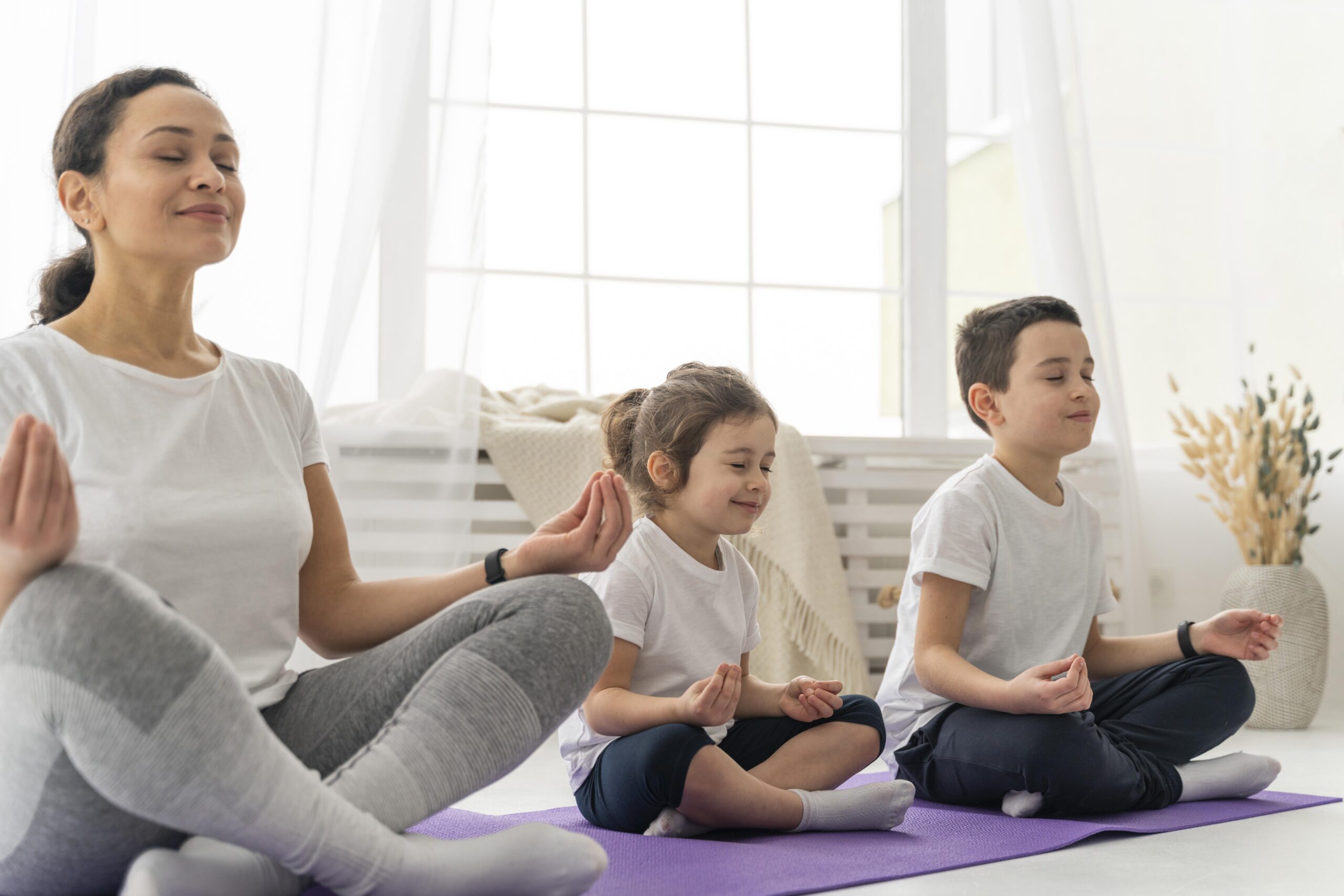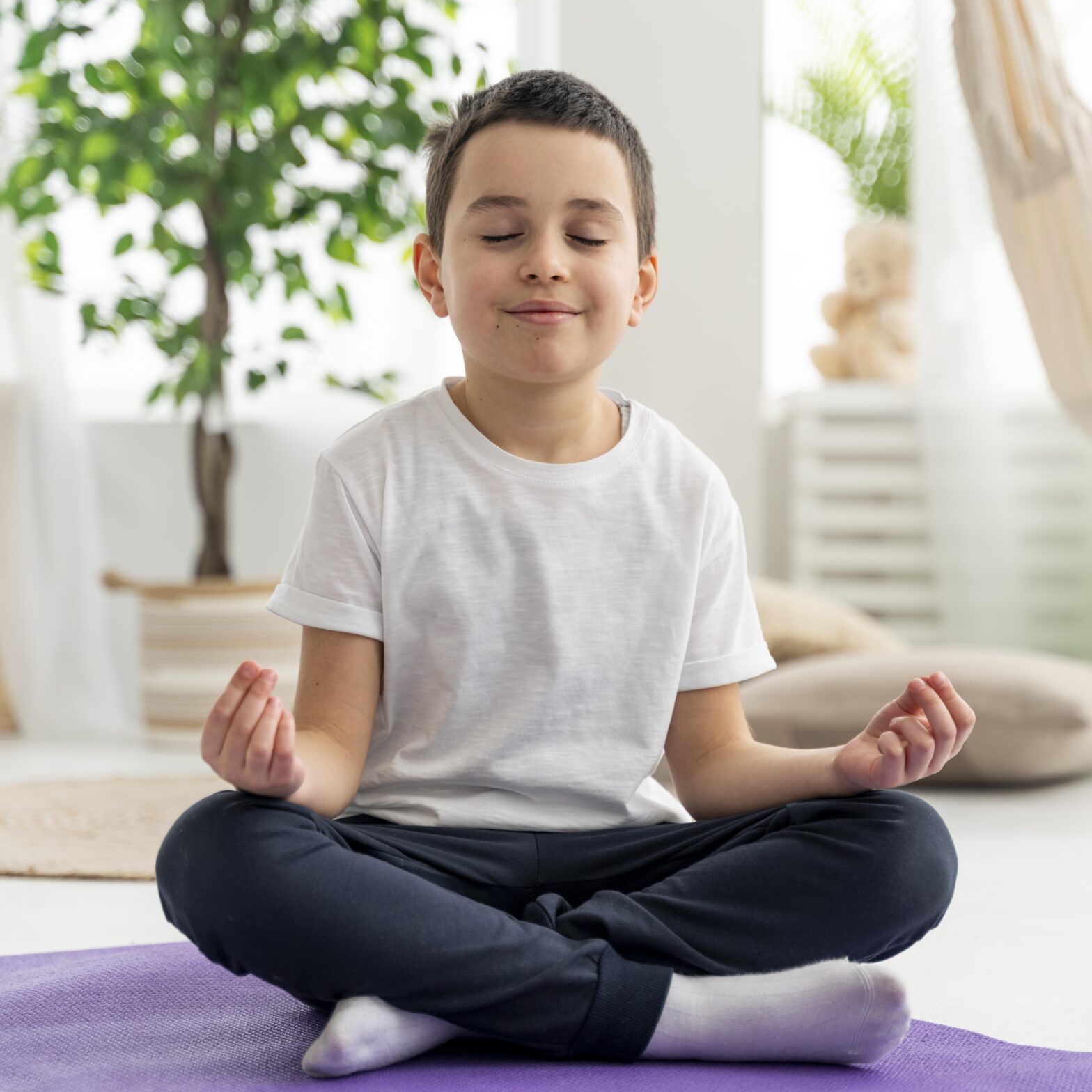Today’s children are growing up in a world that is louder, faster, and more overstimulating than ever before. Screens never turn off, schedules are packed, and even young kids feel pressure from school, social expectations, and everyday changes. As tantrums become more frequent and emotional overwhelm becomes common, many parents are searching for a gentle, natural, and science-backed solution. And this is where the new power of meditation for kids is making a real difference.
Daily mindfulness is no longer just a wellness trend—it’s becoming a practical emotional tool that helps children calm their minds, understand their feelings, and build emotional intelligence from a young age.
The Rising Trend: Kids Practicing Mindfulness Daily
A few years ago, meditation was mostly an adult wellness practice. But today, children as young as four are learning guided meditation, breathwork, and simple mindfulness exercises at home and in schools. From YouTube meditation stories to mindful breathing breaks in classrooms, the trend has exploded.
Parents have started noticing that even five minutes of mindfulness can transform their child’s mood for the entire day. Kids who practice daily meditation show better concentration, fewer emotional outbursts, and a calmer approach to challenges. This shift is not just psychological—research now confirms that mindfulness literally strengthens parts of the brain responsible for decision-making, empathy, and emotional control.
How Meditation Helps Reduce Tantrums Naturally
Tantrums happen when a child’s emotions rise faster than they can understand or communicate. Meditation addresses this issue at the root.
When kids meditate, they learn to pause before reacting. Their breathing slows, their heart rate calms, and their thoughts become clearer. This helps them express what they feel instead of exploding. Parents report that after a few weeks of daily mindfulness, kids become better at identifying emotions like anger, frustration, sadness, and excitement—before those emotions turn into meltdowns.
The real change comes from emotional awareness. A child who can recognize they are “feeling very angry” or “feeling worried” is far less likely to react with intensity. Instead of screaming or crying, they take a breath, they pause, and they respond.
Boosting Emotional Intelligence Through Mindfulness
Emotional intelligence is the ability to understand, manage, and express feelings in a healthy way. It’s also the skill that helps children build deeper friendships, communicate better, and handle stress throughout life.
Meditation strengthens emotional intelligence by helping children understand why they feel what they feel. During mindfulness exercises, kids become more aware of their thoughts and sensations. They learn that emotions are temporary and manageable, rather than overwhelming or frightening.
Over time, meditation helps children develop empathy as well. When they calm their own minds, they also become more patient with others. Parents often see improvements in sibling relationships, social behaviour, and kindness. Kids who meditate regularly tend to listen better, share more, and show compassion naturally.
Why Daily Mindfulness Works Better Than Occasional Practice
Meditation’s biggest impact comes through consistency. Just like brushing teeth or reading at bedtime, mindfulness works best when it becomes a daily habit.
A short 5-minute session each morning or evening helps kids reset their emotional system. Their brains slowly become wired to respond calmly rather than react quickly. This daily repetition helps them build strong emotional self-regulation.
Parents often find that making mindfulness a small part of the daily routine—like after waking up, before homework, or before sleeping—creates a big difference in behaviour, focus, and mood.
The Shift From Hyperactivity to Calm Focus
Kids today are constantly switching between screens, noises, and activities, which makes it harder for them to stay focused. Meditation gently trains their mind to stay in one place without force or pressure.
When children learn to concentrate on their breath or a guided story, they are actually strengthening their focus muscle. This helps them perform better in school, stay engaged in class, and complete tasks with less frustration.
Many teachers who include mindfulness in classrooms report reduced conflict, improved listening skills, and a more peaceful learning environment. Instead of rushing from one thought to the next, children learn the art of slowing down.

Meditation as a Safe Emotional Space for Kids
Kids often feel emotions that they don’t fully understand or know how to express. Meditation creates a safe internal space where they can explore those feelings without judgment.
Mindfulness teaches children that it’s okay to feel sad, angry, excited, or scared. It helps them hold these emotions gently rather than suppress or ignore them. This emotional acceptance builds confidence, self-awareness, and emotional maturity.
For children who struggle with anxiety or sensitivity, meditation becomes a comforting tool they can turn to anytime—before school, during stressful moments, or when they feel overwhelmed.
How Parents Can Make Meditation Fun and Engaging
Kids respond best when meditation feels playful rather than strict. Parents can make mindfulness enjoyable by introducing guided stories, soft music, imagination-based breathing, or simple visualizations like “blowing away worry clouds.
Consistency becomes easier when meditation feels like a calming ritual—not a rule. Parents who meditate with their children also help build a deeper emotional bond and teach by example. When kids see adults practicing calmness, they naturally follow.
Conclusion: A Life-Changing Habit That Starts Small
Meditation for kids is not just a modern trend—it is a life skill that shapes emotional strength, resilience, focus, and empathy. As tantrums decrease and emotional intelligence grows, children begin to understand their inner world with confidence and calmness.
In a busy, fast-moving world, mindfulness gives kids the grounding they need to grow into emotionally strong, kind, and self-aware individuals. A simple daily practice may feel small, but its impact lasts a lifetime.

